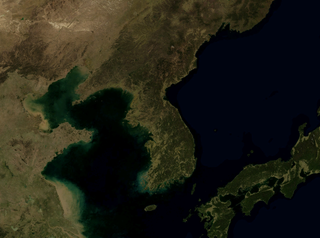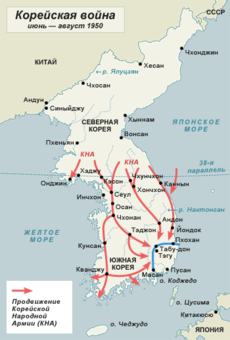
The United Nations Security Council (UNSC) is one of the six principal organs of the United Nations (UN) and is charged with ensuring international peace and security, recommending the admission of new UN members to the General Assembly, and approving any changes to the UN Charter. Its powers as outlined in the United Nations Charter include establishing peacekeeping operations, enacting international sanctions, and authorizing military action. The UNSC is the only UN body with authority to issue resolutions that are binding on member states.
A United Nations General Assembly resolution is a decision or declaration voted on by all member states of the United Nations in the General Assembly.

A war of aggression, sometimes also war of conquest, is a military conflict waged without the justification of self-defense, usually for territorial gain and subjugation, in contrast with the concept of a just war.

United Nations Security Council Resolution 425, adopted on 19 March 1978, five days after the Israeli invasion of Lebanon in the context of Palestinian insurgency in South Lebanon and the Lebanese Civil War, called on Israel to withdraw immediately its forces from Lebanon and established the United Nations Interim Force In Lebanon (UNIFIL). It was adopted by 12 votes to none; Czechoslovakia and the Soviet Union abstained, and China did not participate.

The United Nations Security Council veto power is the power of the five permanent members of the UN Security Council to veto any decision other than a "procedural" decision.
United Nations General Assembly (UNGA) resolution 377 A, the "Uniting for Peace" resolution, states that in any cases where the Security Council, because of a lack of unanimity among its five permanent members (P5), fails to act as required to maintain international security and peace, the General Assembly shall consider the matter immediately and may issue appropriate recommendations to UN members for collective measures, including the use of armed force when necessary, in order to maintain or restore international security and peace. It was adopted 3 November 1950, after fourteen days of Assembly discussions, by a vote of 52 to 5, with 2 abstentions. The resolution was designed to provide the UN with an alternative avenue for action when at least one P5 member uses its veto to obstruct the Security Council from carrying out its functions mandated by the UN Charter.

United Nations Command is the multinational military force established to support the Republic of Korea during and after the Korean War. It was the first international unified command in history, and the first attempt at collective security pursuant to the Charter of the United Nations.
The use of force by states is controlled by both customary international law and by treaty law. The UN Charter reads in article 2(4):
All members shall refrain in their international relations from the threat or use of force against the territorial integrity or political independence of any state, or in any other manner inconsistent with the purposes of the United Nations.
Chapter VII of the United Nations Charter sets out the UN Security Council's powers to maintain peace. It allows the Council to "determine the existence of any threat to the peace, breach of the peace, or act of aggression" and to take military and nonmilitary action to "restore international peace and security".

Resolution 82 was adopted by the United Nations Security Council (UNSC) on 25 June 1950. It condemned the "armed attack on the Republic of Korea by forces from North Korea", while calling for "the immediate cessation of hostilities" and for "the authorities in North Korea to withdraw forthwith their armed forces to the 38th parallel". The measure was adopted with 9 voting for, none opposed, and one abstention by Yugoslavia. The Soviet Union was absent, as it was boycotting the UN at the time for its recognition of the Republic of China as China's representative to the organization.

The United Nations Security Council Resolution 84, adopted on July 7, 1950, was the United Nations Security Council resolution which authorized the formation of the United Nations Command to provide military support for South Korea, following a North Korean invasion and offensive at the outbreak of the Korean War.
The United Nations Peacekeeping efforts began in 1948. Its first activity was in the Middle East to observe and maintain the ceasefire during the 1948 Arab–Israeli War. Since then, United Nations peacekeepers have taken part in a total of 72 missions around the globe, 12 of which continue today. The peacekeeping force as a whole received the Nobel Peace Prize in 1988.
Operation Pokpung was the military invasion of the Republic of Korea (ROK) by the Democratic People's Republic of Korea (DPRK) that triggered the Korean War. The DPRK military began the offensive by crossing the 38th parallel north and entering ROK territory at 04:00 PYT/KST on 25 June 1950; the DPRK government did not issue any declaration of war before the invasion.

The Republic of Korea and the Democratic People's Republic of Korea were simultaneously admitted to the United Nations (UN) in 1991. On 8 August 1991, the UN Security Council passed Resolution 702, recommending both states to the General Assembly for membership. On 17 September 1991, the General Assembly admitted both countries under Resolution 46/1.

The First Battle of Seoul, known in North Korean historiography as the Liberation of Seoul, was the North Korean capture of the South Korean capital, Seoul, during June 1950 at the start of the Korean War.
The following lists events that happened during 1950 in the Democratic People's Republic of Korea.

United Nations General Assembly Resolution ES‑11/1 is a resolution of the eleventh emergency special session of the United Nations General Assembly, adopted on 2 March 2022. It deplored Russia's invasion of Ukraine and demanded a full withdrawal of Russian forces and a reversal of its decision to recognise the self-declared People's Republics of Donetsk and Luhansk.

United Nations General Assembly Resolution ES‑11/2 is the second resolution of the eleventh emergency special session of the United Nations General Assembly, adopted on 24 March 2022, following Resolution ES-11/1 which was adopted on 2 March 2022. Resolution ES‑11/2 reaffirmed the UN's former commitments and obligations under its Charter, and reiterated its demand that Russia withdraw from Ukraine's recognized sovereign territory; it also deplored, expressed grave concern over and condemned attacks on civilian populations and infrastructure. Fourteen principles were agreed.
The Soviet Union boycotted the United Nations from 13 January until 1 August 1950. The boycott originated over a dispute over the representation of China before the United Nations. The Soviet Union demanded that representatives of the People's Republic of China (PRC) be seated in the United Nations Security Council while the United Nations recognized representatives of the Kuomintang and the Republic of China. After the Soviet Union lost a motion to seat the PRC in the UN on 13 January 1950, it decided to boycott the organization.













